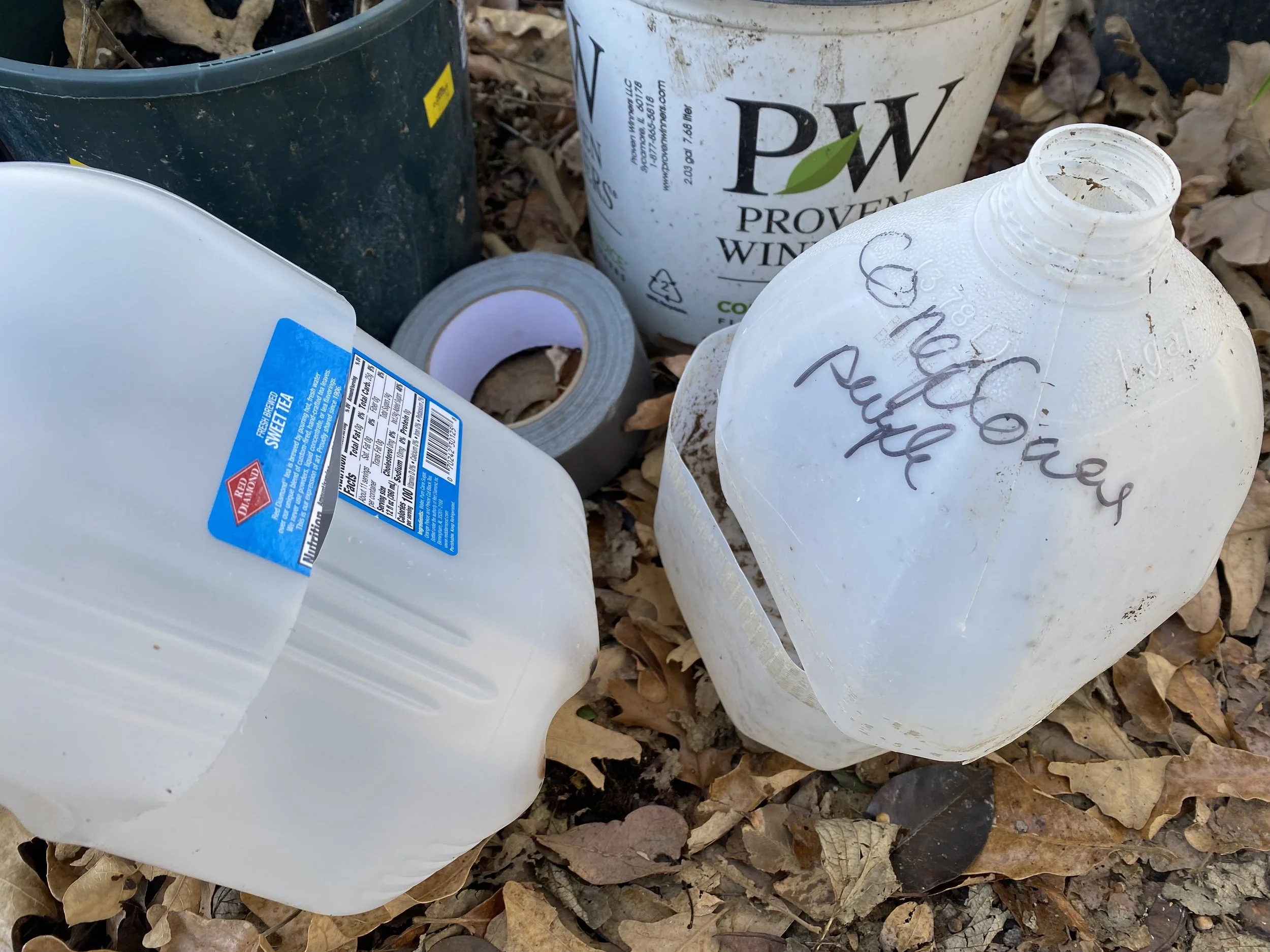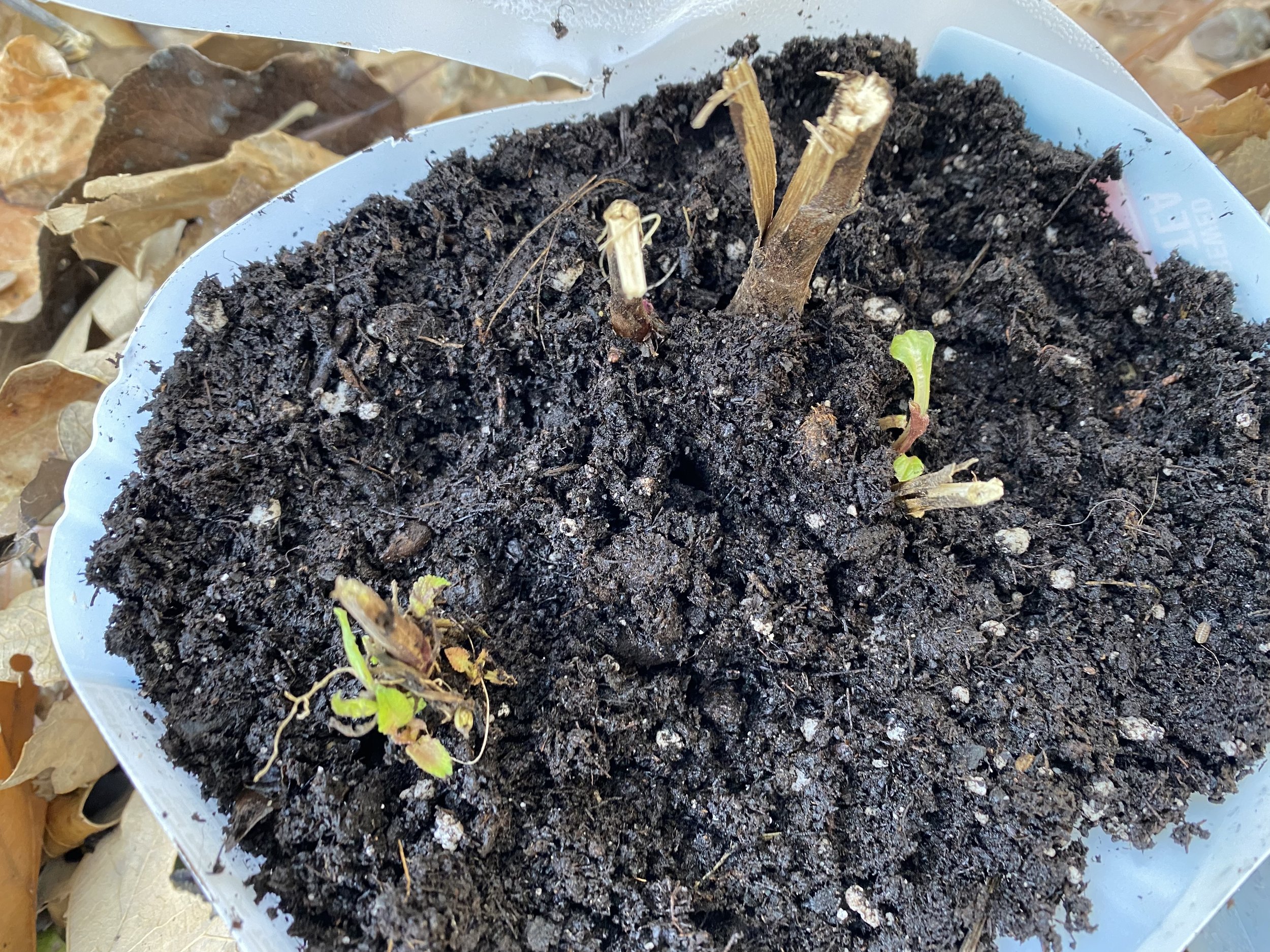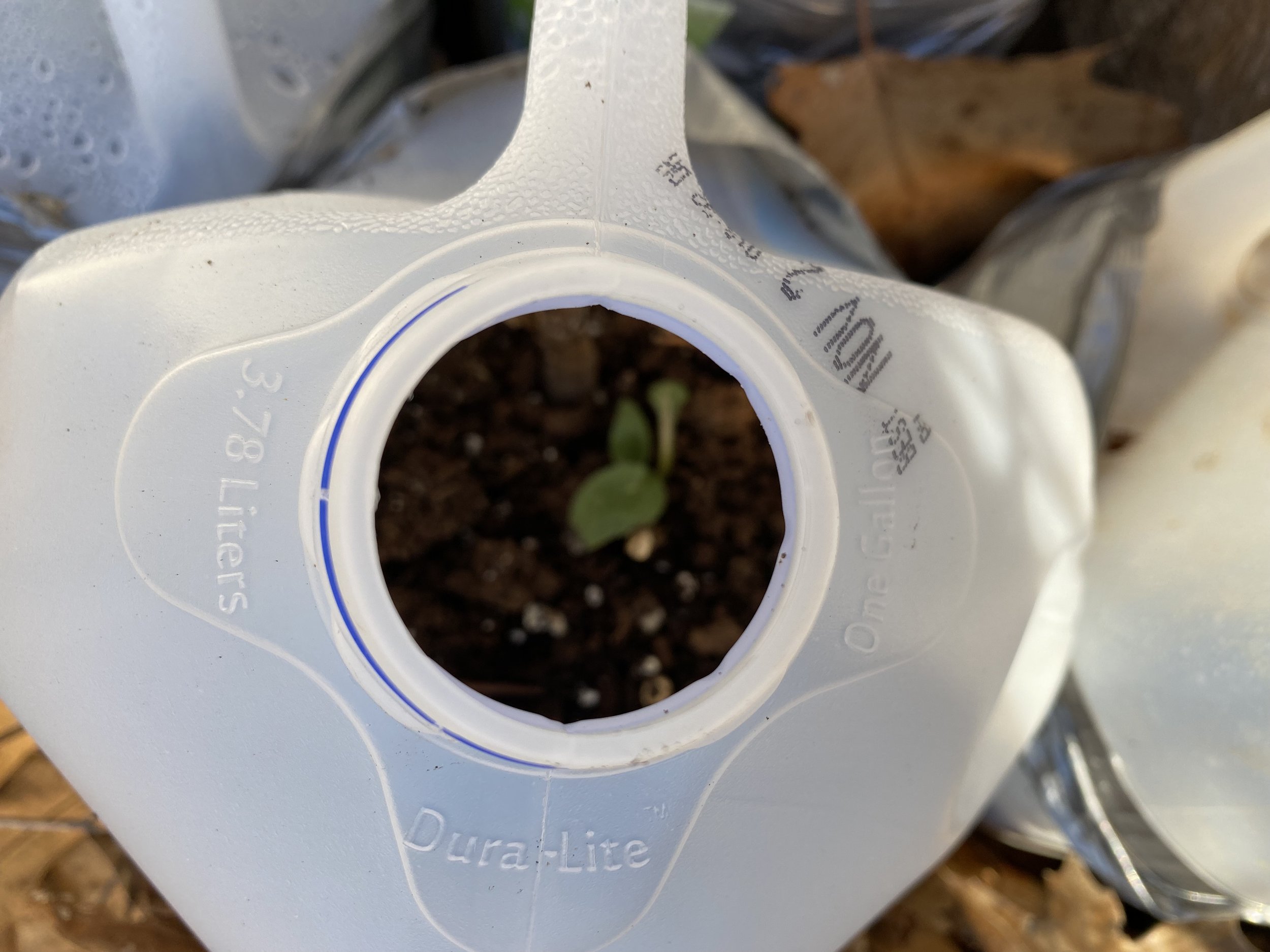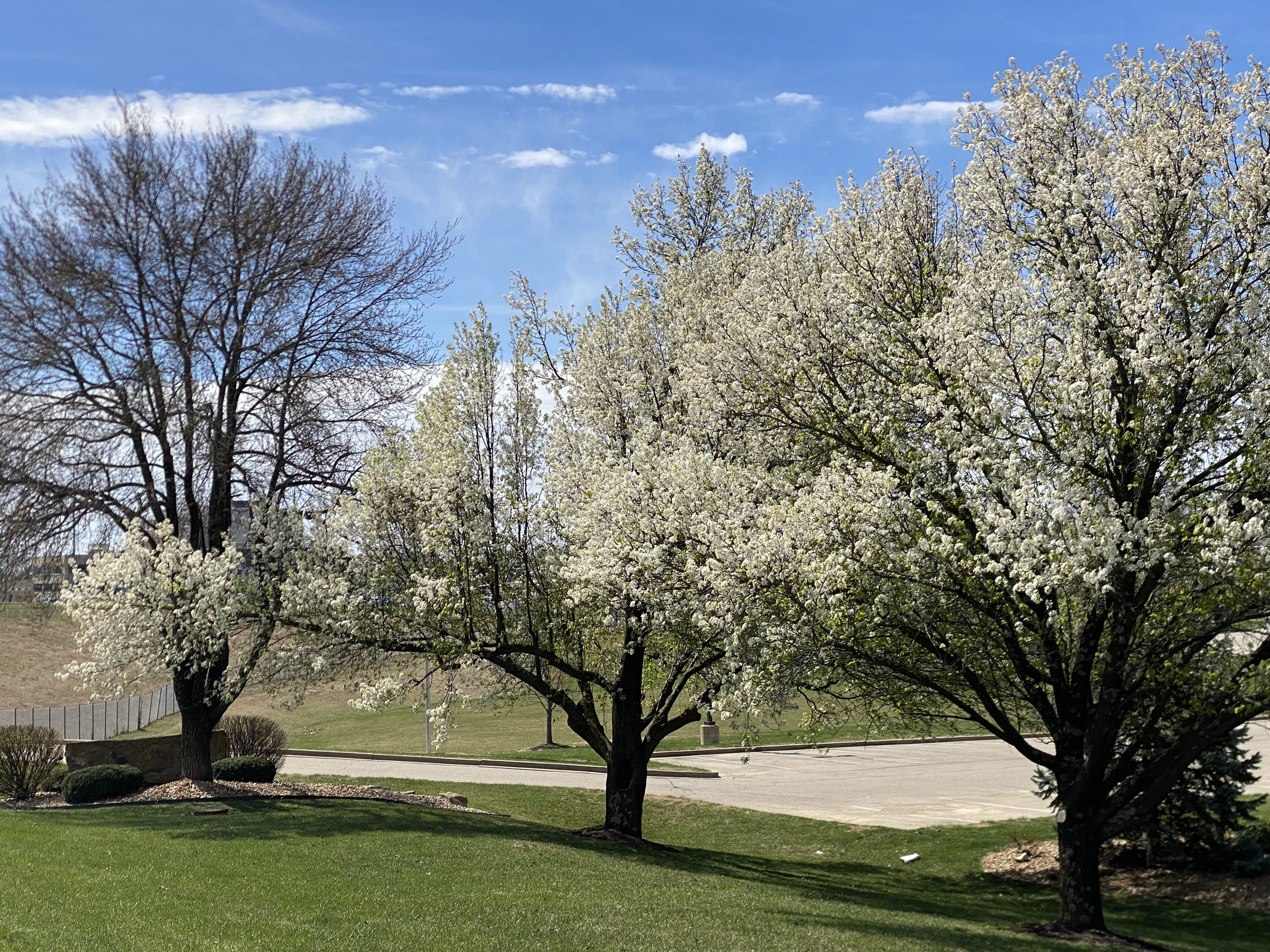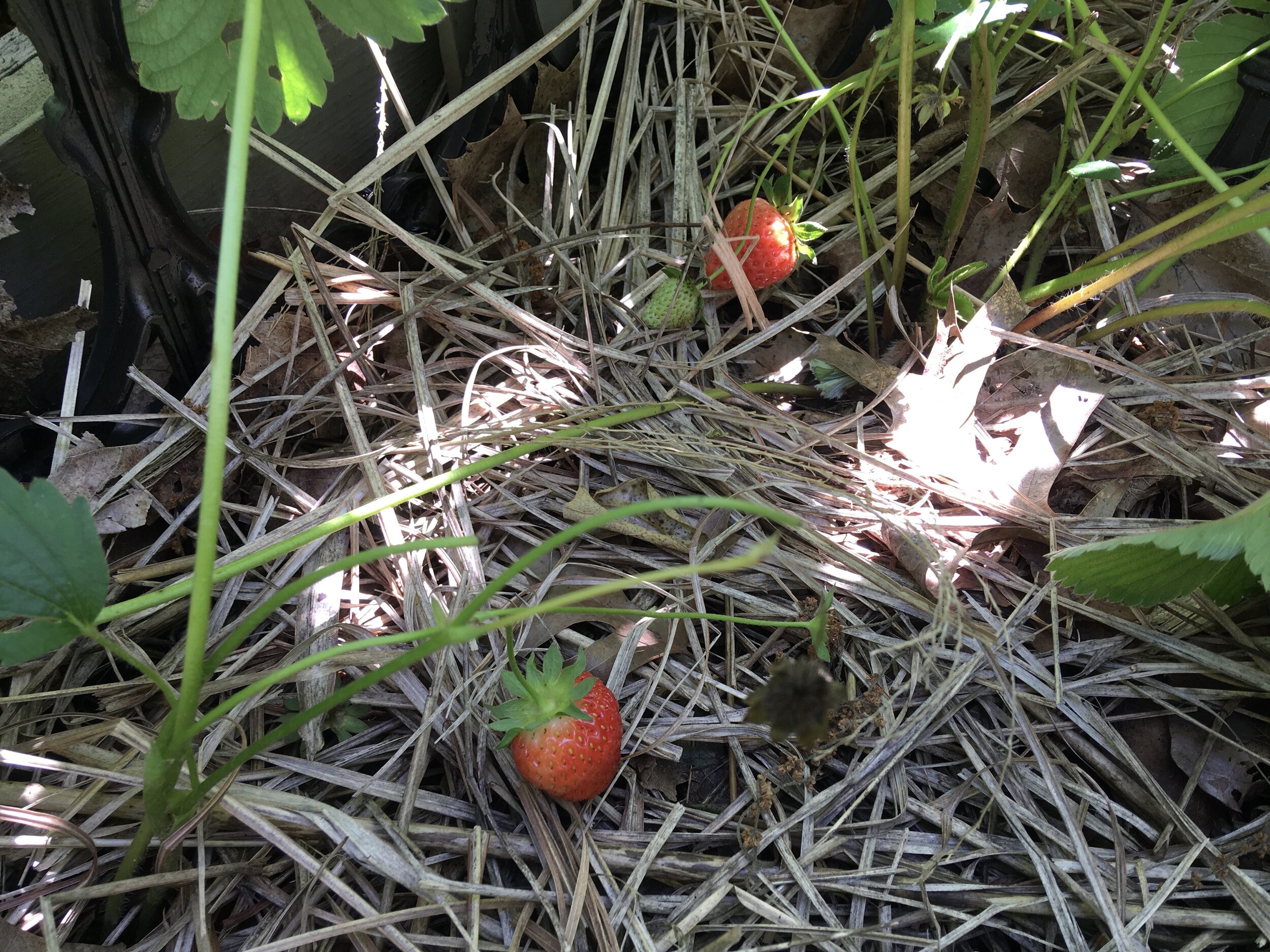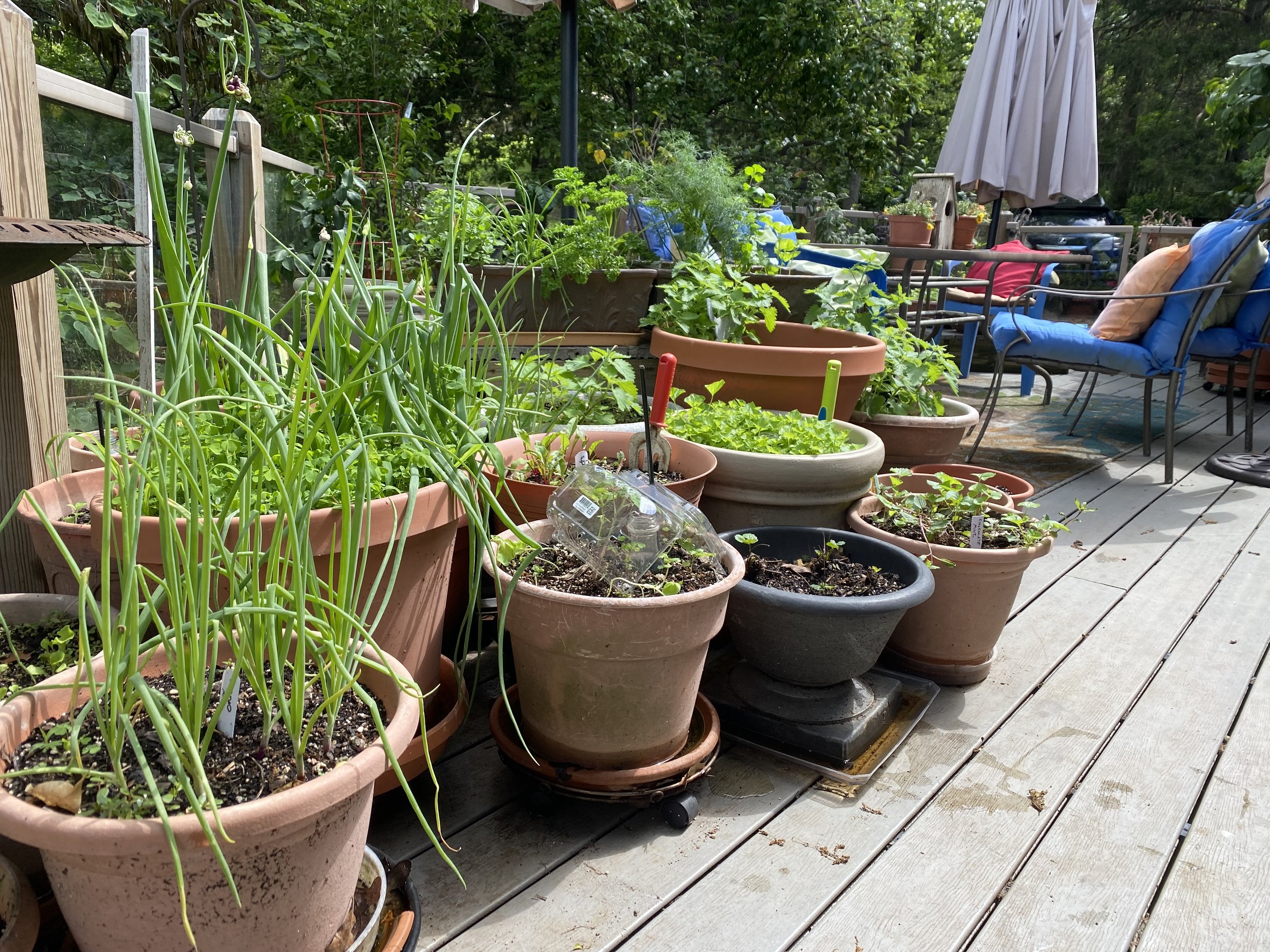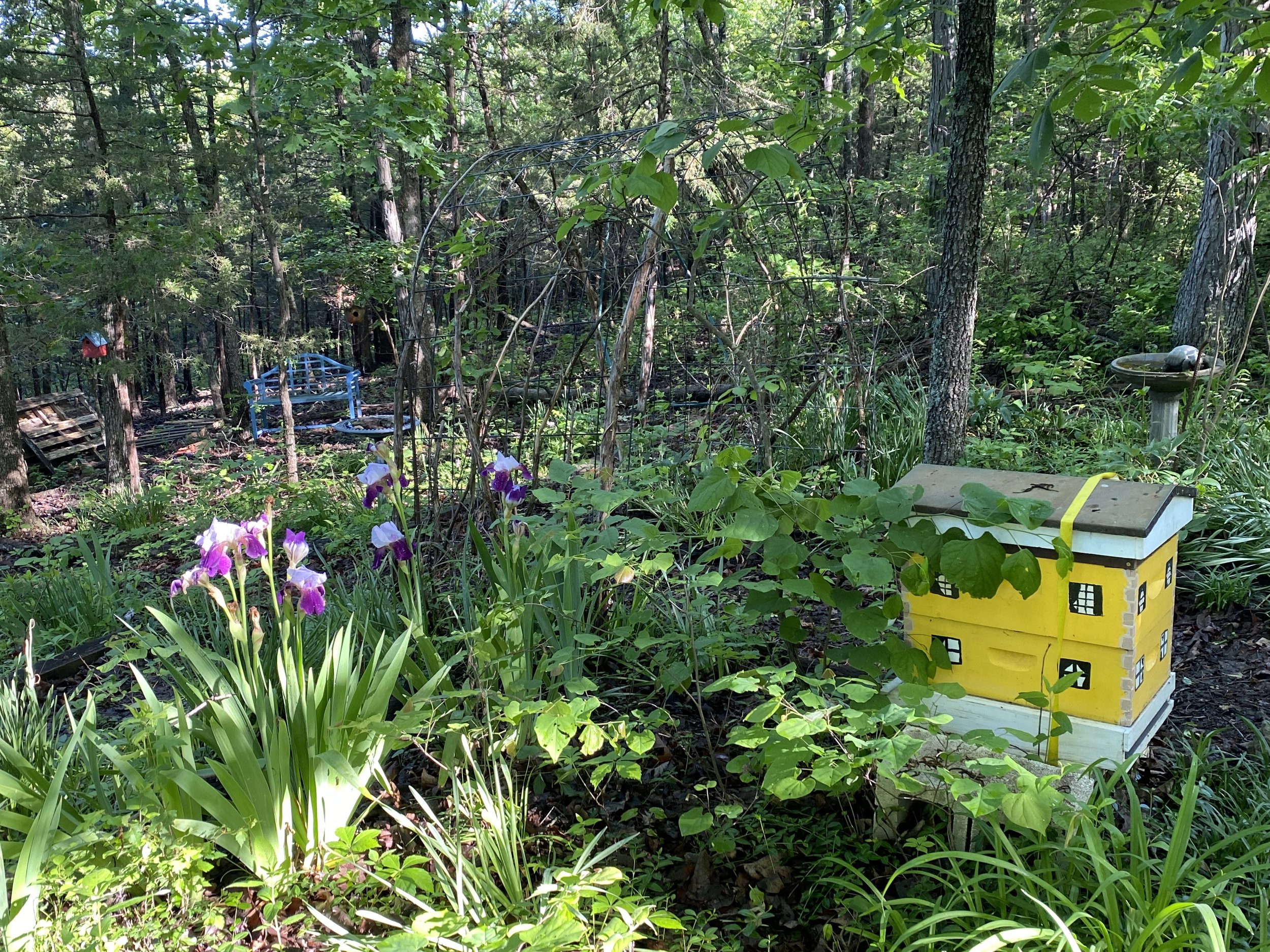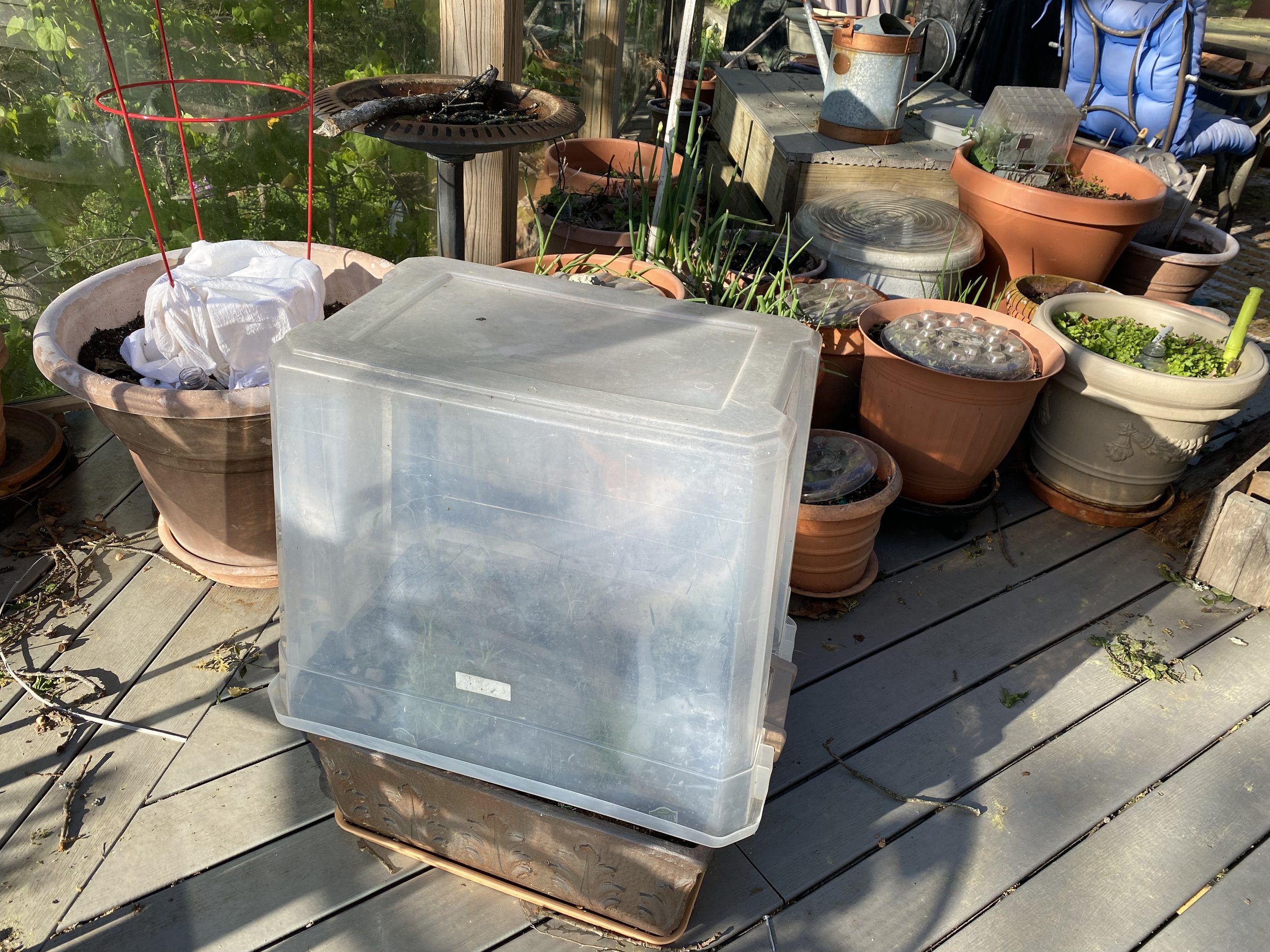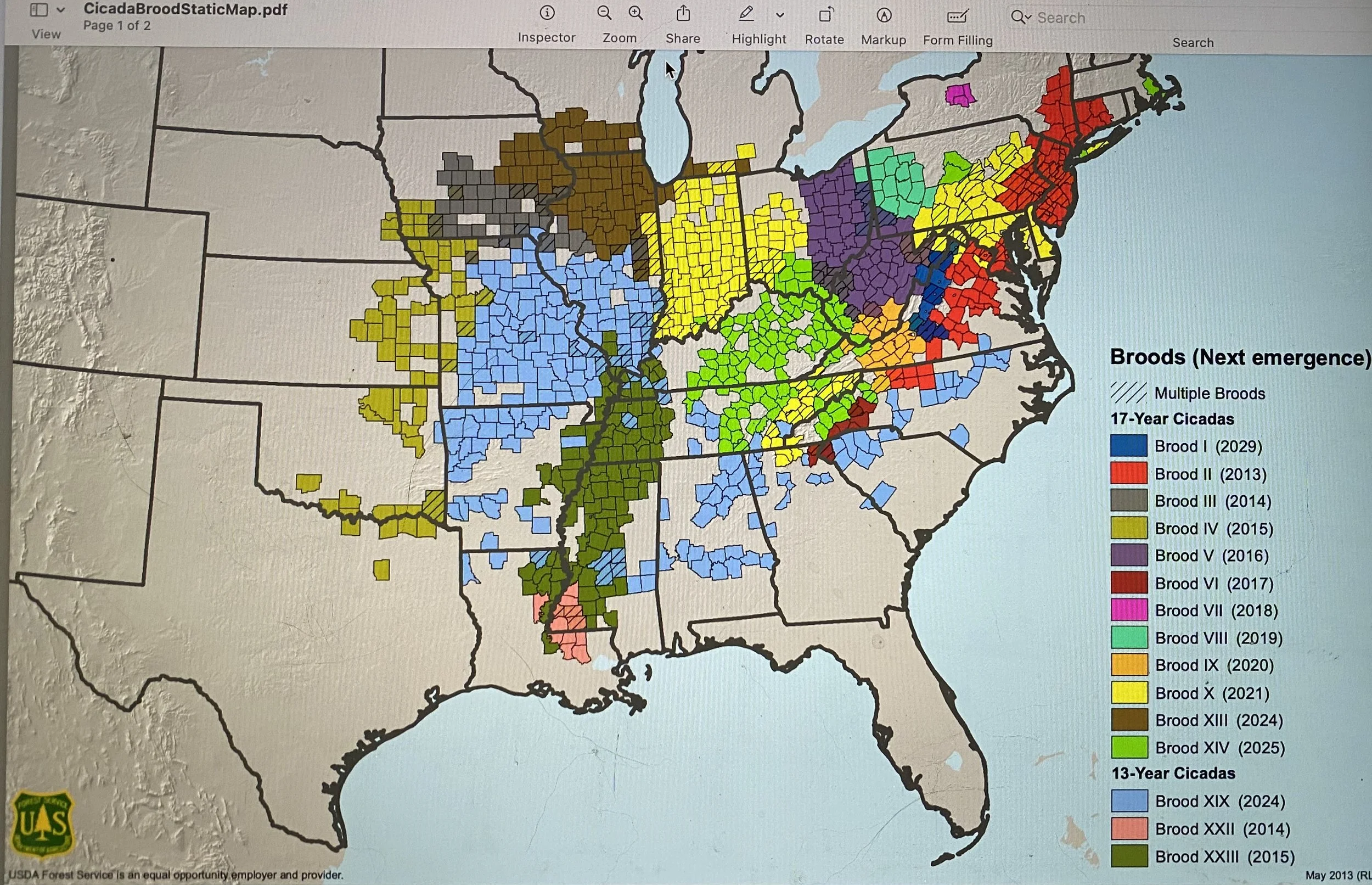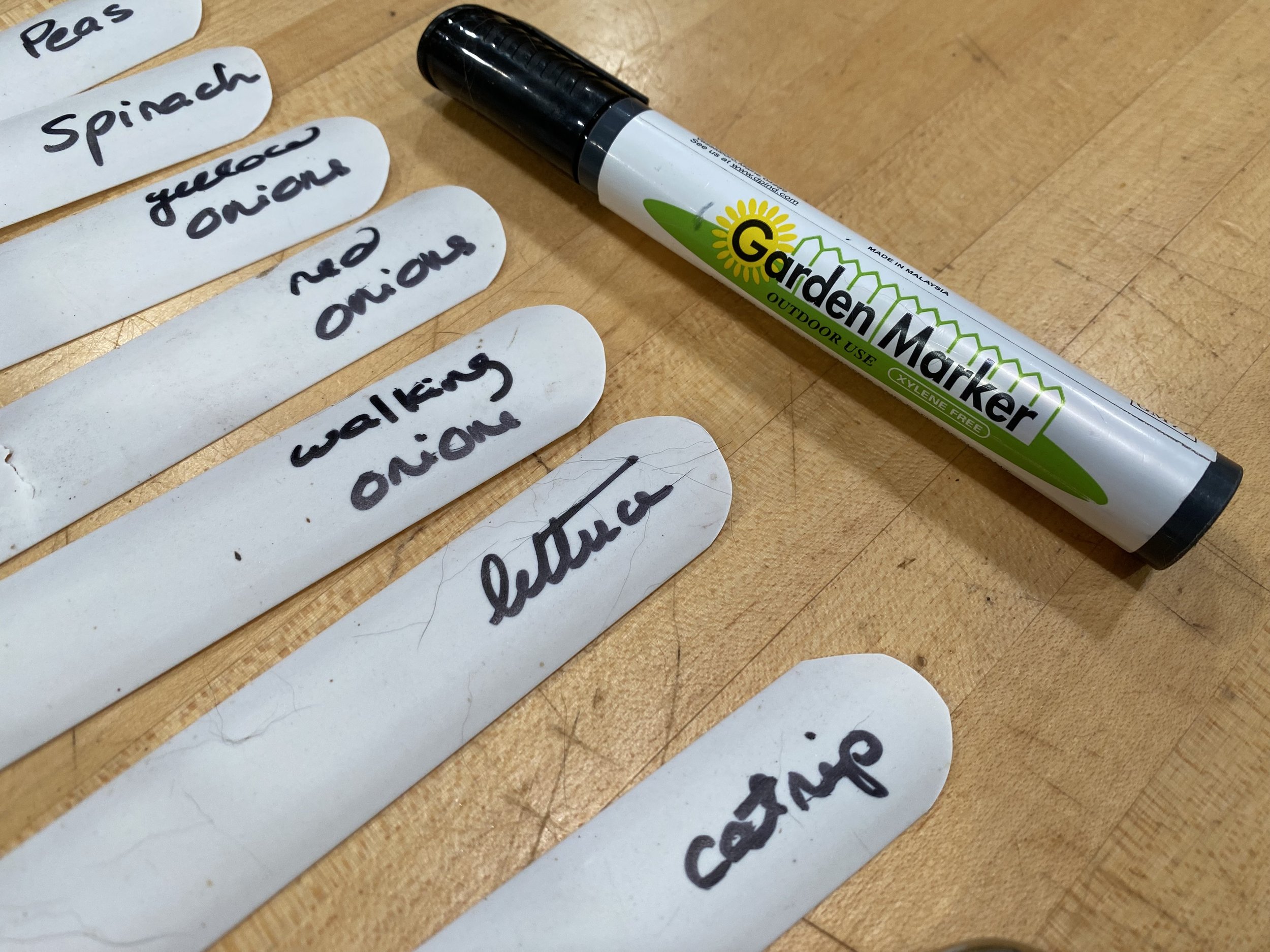Planting Coneflower Seeds
/Milk jugs are perfect tiny greenhouses to start wildflower seeds. (Photo by Charlotte Ekker Wiggins)
Planting Coneflower Seeds
I’ve had this on my to do list for some time now but never seemed to have enough empty gallon milk jugs saved up to try it.
This year, I collected several and set off to get my purple coneflower seeds started for next year.
Yes, it’s December and in USDA Hardiness zone 5, the best time to plant many wildflower seeds. Some species need the exposure to winter temperatures to germinate, and purple coneflowers are one of those species.
Now I’ve sowed seeds directly into the garden as well. The challenge with that is my stakes get moved during winter so when spring arrives, I may or may not be able to find where those seeds were scattered.
Purple coneflower starts from the end of the season. (Photo by Charlotte Ekker Wiggins)
I had two purple coneflowers with starts so I settled those into one of these milk cartoons so they could winter over with some protection.
To get the milk cartons ready, cut them in the middle but below the handle, leaving 2-inches under the handle as a hinge.
Make several holes in the bottom so excess water won’t accumulate.
Fill with fresh potting soil. Mist soil so it’s hydrated but not wet.
Scatter seeds over the soil. Add a light soil topping.
Once seeds are covered, I taped up the milk jugs with duct tape. (Photo by Charlotte Ekker Wiggins)
Gently hinge the top over the cut bottom and wrap with duct tape. Frankly this was the hardest step to do, in the first round I had more duct tape around my hand than I did the milk jugs.
With a little practice, you will get the duct tape where it needs to go, sealing the milk jug back together.
Two months later there are signs of greenery. (Photo by Charlotte Ekker Wiggins)
Place the milk jugs where they will get rain water but some protection. I have mine tucked away near a trunk seat between my bay windows.
The milk jugs are tucked into the side of the house. (Photo by Charlotte Ekker Wiggins)
If you’re in a drought area you may want to add a little water. Otherwise, the regular rain and snow will take care of watering. Make sure to periodically peek to make sure there is moisture just in case.
Good seeds to start include native milkweed, purple coneflowers and asters.
Next spring, after the danger of frost is over, the new seedlings should be ready to plant into the ground, hardier and ready to grow. Can’t wait!

